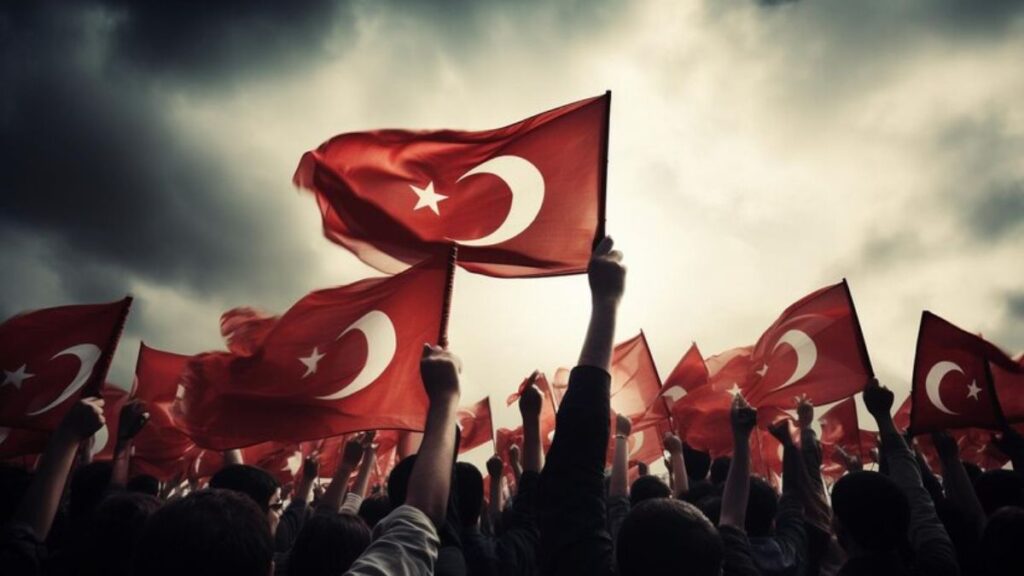Introduction: A Phrase That Cuts Deep
There are few phrases in the digital age that stir both anger and intrigue quite like “utanmaz Türklere.” Loosely translating to “shameless Turks,” the term is more than just a provocation — it is a linguistic flashpoint, a rhetorical grenade lobbed into the battlegrounds of identity, nationalism, history, and perception. In this article, we’ll deconstruct the phrase “utanmaz Türklere” from multiple lenses: historical, sociopolitical, cultural, and digital. We’re not just diving into the semantics — we’re pulling apart the roots, the consequences, and the battleground it represents online and offline.
Because words have power. Especially when they travel unfiltered across the unrelenting feeds of the internet.
Part I: Dissecting the Phrase “Utanmaz Türklere”
Let’s start with the basics. In Turkish, “utanmaz” means “shameless,” a descriptor heavy with moral judgment. “Türklere” is the dative plural form of “Turks,” roughly translating to “to the Turks” or “about the Turks,” depending on usage. When put together, “utanmaz Türklere” becomes a loaded, accusatory phrase often flung in rage or scorn.
But the simplicity of its grammatical construction belies a mountain of historical and emotional complexity.
Part II: Historical Resonance — Shame and National Identity
Turkey, the successor of the Ottoman Empire, carries a past laden with empire, collapse, war, and reinvention. Its history is one of proud triumph and controversial legacy. For some, the word “utanmaz” evokes perceived historical wrongs — from the Armenian Genocide debates to military coups, press crackdowns, or minority issues.
Critics — both domestic dissenters and foreign voices — have wielded “utanmaz Türklere” as a catch-all indictment. Whether it’s aimed at past crimes or modern missteps, the phrase suggests a nation (or its representatives) lacking in remorse, empathy, or self-reflection.
Yet, this generalization is what makes the term so incendiary.
Turkish national identity is heavily tied to pride — in culture, in independence, in resilience. Mustafa Kemal Atatürk’s creation of a secular republic after the Ottoman fall was not just political. It was symbolic of a modern, self-reliant nation emerging from centuries of imperial history. To label this identity as “shameless” is to directly assault the dignity many Turks hold sacred.
Part III: Where It’s Heard — From Protests to Troll Farms
So where does “utanmaz Türklere” show up?
-
Online Forums and Comment Sections: Whether it’s Reddit threads or YouTube comments under political documentaries, “utanmaz Türklere” is a phrase seen flaring up in multilingual discussions — often from trolls, critics, or bots aiming to ignite ethnic outrage.
-
Political Protests: In diaspora communities, especially in Europe, the phrase has occasionally appeared on placards — particularly in anti-Turkish demonstrations tied to Kurdish, Armenian, or human rights causes.
-
State-Led Propaganda and Disinformation Campaigns: Here’s where it gets tricky. The phrase has been spotted in operations aimed at stirring ethnic division — sometimes traced back to troll farms or intelligence agencies exploiting deep-rooted historical tensions.
-
Art and Satire: A smaller subset of Turkish dissident artists and satirists — often exiled or operating pseudonymously — have used the term “utanmaz Türklere” as a mirror held up to their own people, in an effort to provoke introspection rather than insult.
Part IV: The Fragile Balance of Critique vs. Hate Speech
This is where nuance comes in.
To call out injustices — whether they involve historical grievances or current sociopolitical issues — is one thing. But to apply blanket moral judgment to an entire people crosses a line. The phrase “utanmaz Türklere” flirts with that line unapologetically.
In an era where nationalism is resurging globally, where Turkish politics is increasingly polarized, and where online discourse has become a battleground of identities, such a phrase becomes more than provocation. It becomes weaponized language.
But this isn’t just about Turks. Replace “Türklere” with any national group, and the conversation becomes instantly relevant to global dynamics of xenophobia, racism, and collective blame.
And yet — silencing the term without interrogating its origin is also dangerous. Because if people are reaching for a phrase like “utanmaz Türklere,” there’s usually pain beneath it. Anger. A sense of injustice. A need for accountability.
Part V: Who Uses It and Why?
Let’s talk demographics.
-
Diaspora Dissidents: Some Turkish exiles — journalists, academics, activists — use this phrase in a self-critical context. They’re not aiming to denigrate Turks, but to awaken them. It’s a literary slap — a jarring indictment meant to spark conversation, not hatred.
-
Foreign Critics: These users often lack the cultural nuance or empathy behind the phrase. For them, “utanmaz Türklere” is a blunt instrument — a way to lash out, usually after reading headlines about Turkey’s actions in regional politics or domestic repression.
-
Nationalist Trolls (Non-Turkish): Sometimes it’s not even about Turks. The phrase is just part of a larger trend of nationalist flame wars — where different groups insult each other with loaded terms to stoke division.
-
AI and Bots: Unfortunately, “utanmaz Türklere” has appeared in auto-generated hate speech lists and bot-created spam campaigns — not by intent, but as part of algorithmic scraping and weaponization of inflammatory language.
Part VI: The Legal and Ethical Backlash
In Turkey, insulting “Turkishness” is a punishable offense under Article 301 of the Penal Code. It’s controversial, yes, but it reflects how seriously the state takes slights against national identity. Uttering “utanmaz Türklere” in a Turkish public square — or writing it in a local publication — could land you in legal trouble.
This makes the phrase doubly sensitive. It’s both a lightning rod and a minefield.
Ethically, we must ask: Is calling a people “shameless” ever a valid critique? Or is it just another form of dehumanization, stripping individuals of nuance in favor of narrative?
Part VII: The Role of Media and the Feedback Loop
Mainstream media, both Turkish and international, rarely use the phrase “utanmaz Türklere” outright. But the sentiment sometimes leaks through — especially in coverage that’s hyper-critical of Turkey’s government, but fails to separate the state from its citizens.
In return, Turkish media — especially nationalist-leaning outlets — seize on such moments. “Western hypocrisy,” they say. “Orientalist bias.” And so, the phrase “utanmaz Türklere” becomes part of a feedback loop of misunderstanding and defensiveness.
Part VIII: Reclaiming or Retiring the Phrase?
Language evolves. Some words are reclaimed — transformed from slurs into badges of honor. Others are retired — buried under the weight of their toxicity.
Could “utanmaz Türklere” be reclaimed? Some Turkish satirists have tried. Think: flipping the insult into a critique of hypocrisy, corruption, or passive citizenship. “If being utanmaz means not being afraid to speak the truth, then yes — maybe we need more utanmaz Türklere.”
But the risks are high. Without context, the phrase still reads like pure vitriol.
Perhaps the wiser move is to retire the phrase — not through censorship, but through cultural conversation. To talk it out. To understand why it offends, and why it’s used, and how we can move the discussion forward without diving into the language of shame.
Conclusion: From Provocation to Dialogue
“Utanmaz Türklere” is not just a phrase. It’s a prism. Through it, we glimpse the messy entanglements of history, identity, politics, and digital communication. It’s a phrase that wounds, provokes, and ignites — but it also forces us to confront some uncomfortable truths about blame, pride, and belonging.
If we want a future where critique doesn’t devolve into hate, and where national identity can coexist with accountability, we need to interrogate phrases like this — not silence them, not amplify them, but understand them.
Because beneath the insult is a question: what does it mean to be proud, and what does it mean to be shameless?
And maybe, just maybe, the answers lie not in shouting, but in listening.







